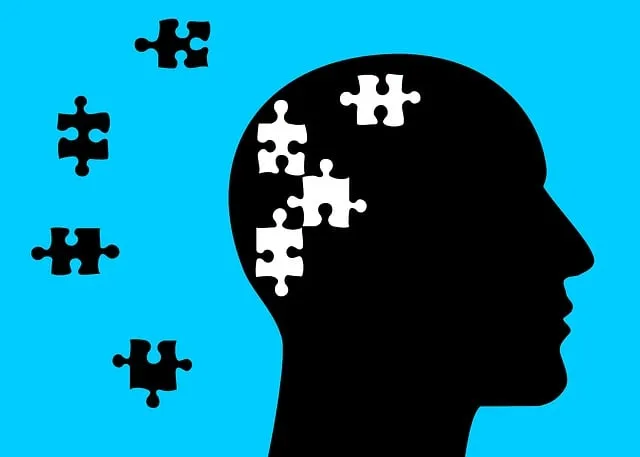Longmont Kaiser Permanente is at the forefront of battling the stigma surrounding mental illness through accessible resources, education, workshops, and advocacy. Their comprehensive approach includes insurance plans for therapy, stress reduction methods, and burnout prevention strategies, fostering a supportive community where mental wellness is valued. The organization's podcast series, educational initiatives, and public events promote open conversations, dispel myths, and encourage early intervention. Evaluating programs through surveys and focus groups, along with policy analysis, ensures tailored and effective solutions. Mindfulness meditation has also proven beneficial in reducing internalized stigma.
Mental illness stigma remains a significant barrier to treatment and recovery. This article delves into comprehensive strategies aimed at reducing this pervasive societal issue, highlighting critical efforts from organizations like Longmont Kaiser Permanente, known for its expanded mental health coverage initiatives. We explore educational programs breaking down stigma barriers, the power of open conversations, and effective evaluation methods. By understanding the roots of mental illness stigma, we can foster inclusive communities that support those facing these challenges.
- Understanding Mental Illness Stigma: Its Impact and Roots
- Longmont Kaiser Permanente's Role in Expanding Mental Health Coverage
- Educational Initiatives to Break Down Stigma Barriers
- Encouraging Open Conversations: Strategies for Community Engagement
- Measuring Success: Evaluating the Effectiveness of Stigma Reduction Programs
Understanding Mental Illness Stigma: Its Impact and Roots

Stigma surrounding mental illness remains a significant barrier to individuals seeking help and support. It is crucial to understand the deep-rooted causes and far-reaching consequences of this societal issue. Mental health problems, such as depression, anxiety disorders, or bipolar disease, are medical conditions that impact a person’s emotional, cognitive, and behavioral state. Despite their prevalence, these illnesses are often shrouded in misunderstanding and negative perceptions, leading to discrimination and social exclusion.
The roots of mental illness stigma can be traced back to historical and cultural beliefs, where mental health issues were frequently attributed to moral failings or spiritual possession. This resulted in individuals facing ostracization and marginalization. Today, while societal attitudes have evolved, the internalized shame and fear associated with mental health struggles persist. The Longmont Kaiser Permanente mental health coverage offers a beacon of hope for many, providing accessible resources and support networks. However, reducing stigma requires a multifaceted approach including Mental Health Policy Analysis and Advocacy to promote understanding, as well as Stress Reduction Methods and Burnout Prevention Strategies for Healthcare Providers to ensure compassionate care.
Longmont Kaiser Permanente's Role in Expanding Mental Health Coverage

Longmont Kaiser Permanente has been at the forefront of expanding mental health coverage and services, making significant strides in improving access to care for its community members. They recognize that mental wellness is a crucial aspect of overall health and well-being, and their efforts reflect this commitment. Through comprehensive insurance plans, they ensure that residents have the support they need, whether it’s through individual therapy, group counseling, or specialized programs designed to address various mental health concerns.
The organization places significant emphasis on mental health education programs, aiming to foster Mental Health Awareness and break down barriers associated with seeking help. Their initiatives include outreach campaigns and workshops that educate individuals on recognizing signs of common mental illnesses and promoting self-care strategies. By integrating these efforts into their healthcare services, Longmont Kaiser Permanente strives to create a supportive environment where mental wellness is prioritized, ultimately contributing to a more resilient and healthier community.
Educational Initiatives to Break Down Stigma Barriers

Educational initiatives play a pivotal role in breaking down stigma barriers surrounding mental illness. Organizations like Longmont Kaiser Permanente are leading the charge with comprehensive mental health coverage and resources, aiming to destigmatize mental wellness issues. Through their Mental Wellness Podcast Series Production, they provide accessible platforms to discuss various aspects of mental health, fostering open conversations and promoting understanding.
These efforts extend beyond media by integrating stress reduction methods into educational curricula for both students and professionals. By incorporating topics like risk assessment for mental health professionals, these initiatives empower individuals to recognize early signs of mental distress and offer support. Such proactive approaches contribute significantly to creating a more inclusive environment where mental wellness is prioritized and stigma is reduced.
Encouraging Open Conversations: Strategies for Community Engagement

In efforts to reduce mental illness stigma, Longmont Kaiser Permanente has taken a proactive approach by encouraging open conversations within the community. One effective strategy involves fostering dialogue through public events and educational workshops, where individuals can share their experiences and dispel myths surrounding mental health. These platforms provide a safe space for people to learn about various mental health conditions, promoting empathy and understanding.
Additionally, Longmont Kaiser Permanente supports initiatives like self-esteem improvement programs and the development of public awareness campaigns that focus on normalizing conversations around mental wellness. They also offer guidance on mental wellness journaling exercises, empowering individuals to track their emotional well-being and share their personal journeys. Such activities not only contribute to breaking down barriers but also encourage community members to seek appropriate mental health coverage, such as that provided by Longmont Kaiser Permanente, when needed.
Measuring Success: Evaluating the Effectiveness of Stigma Reduction Programs

Evaluating the success of stigma reduction programs is a crucial step in understanding their impact on mental health support. Measuring effectiveness involves assessing changes in public attitudes, knowledge, and behaviors related to mental illness. This can be done through surveys, focus groups, and other qualitative methods that capture perceptions and beliefs before and after program implementation. For instance, Longmont Kaiser Permanente’s mental health coverage initiatives have incorporated such evaluations to gauge improvements in self-esteem and shifts in attitudes towards seeking help.
The analysis often includes comparing data from different communities or demographics to identify the most successful strategies. This approach allows for a comprehensive understanding of what works best in reducing stigma. Mental health policy analysis and advocacy play a significant role here, ensuring that programs are evidence-based and tailored to address specific challenges. Moreover, incorporating mindfulness meditation techniques into these initiatives has shown promise in fostering positive mental health outcomes and reducing internalized stigma, as supported by various research studies.
Mental illness stigma reduction is a multifaceted approach that requires collective effort from healthcare providers, educational institutions, and community engagement. As demonstrated by Longmont Kaiser Permanente’s expansion of mental health coverage, collaborative initiatives can significantly improve access to care. Educational programs aimed at breaking down barriers and encouraging open conversations are pivotal in fostering understanding and acceptance. By measuring the success of these efforts through proper evaluation, we can continue to refine strategies and create a more inclusive society that supports those living with mental illness.






